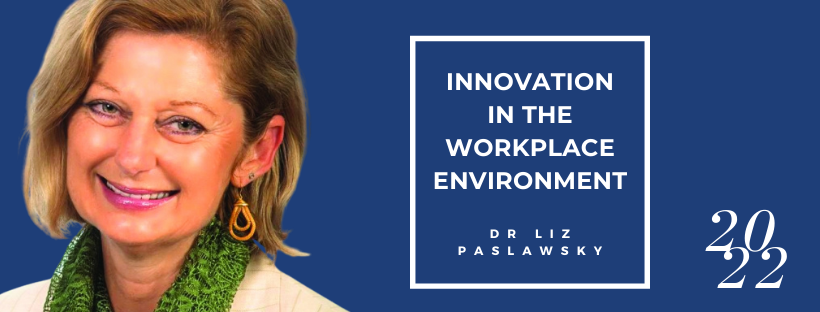Future Hospital 2050: ‘Innovation in the Workspace Environment’.
28 Feb 2022

Following last month’s launch of the Future Hospital 2050 series on innovation in healthcare planning and design, the 4th webinar in the SALUS Global Knowledge Exchange series was chaired by Dr. Liz Paslawsky on the 24th of February, focusing on ‘Innovation in the Workspace Environment’.
Organised by European Healthcare Design, the ‘Future Hospital 2050’ innovation series features three 90-minute episodes, in which panels of leading global experts look at the main drivers expected to shape the future hospital, from AI and medtech to climate and the workforce. Along with an expert international panel, Dr. Paslawsky examined the need, purpose and value of the workspace environment, challenging long-held assumptions and envisioning how to design and plan workspaces for the healthcare workforce of the future, in the future hospital.
Faced with the challenges of a global workforce emergency that has been exacerbated by the pandemic, many health systems and hospitals around the world are in crisis. New integrated models of care and digital transformation supporting personalised and connected care are set against the imperatives of the race to net zero, presenting a new and improved future vision of healthcare.
It also requires new ways of working and new workspace environments, both front and backstage, to ensure our healthcare workforce thrives and flourishes. As the incidence of ‘burnout’, stress and mental health episodes rise, staff wellbeing can no longer be ignored if health systems are to attract and retain skilled, dedicated workers needed to deliver high-quality healthcare services efficiently and effectively.
Here are 4 key predictions on the future of our healthcare workers that can, in turn, help navigate and reposition your workplace to reach its full potential:
- Teamwork is increasingly complex. Multidisciplinary in one specialty, Interdisciplinary between specialties, and Intersectoral teamwork is required between various locations.
- Patient centred care mantra is now the 4 rights. Right geographic location, right treatment, right time, right pathway for coordinated care. Treatment should increasingly stay away from large hospital institutions.
- Digital and AI enabled. This will be enhanced through high speed 5G data links. Telemedicine should be increasingly supported by digital information. There should be in-depth biometric diagnostics available anywhere, anytime with increasing accuracy.
- Hospital design required should enable increased flexibility and adaptability. Examples of this can be variations in surge capacity, patient acuity and decentralised models of care.
A key lesson from Covid is that it forces us to challenge long-held assumptions. When we think of space design for our workforce, the questions we asked previously will not work in the future.
International best practice was based on assumption that staff will achieve quality patient care efficiently and effectively through:
- Standardising design a focus of much research.
- Improved technology and system thinking.
- Educating staff in working differently under revised policies and procedures,
- Giving managers a new set of Key Performance Indicators
This mindset did not resolve major staffing issues we had globally pre covid. Internationally most countries were already addressing staff attraction, retention, burnout, poor culture survey results, and how to reduce bullying in some professions. No app or access to counselling out of hours will resolve these issues.
We then asked the question, what is the impact on staff? Design from now on needs to take a holistic view of staff as physical, mental, emotional, social, and value laden human beings.
This results in the need for all professional disciplines to ask a new set of questions in workspace design:
- How can we enhance the work environment through its design to positively impact the work experience and emotions of all staff?
- How can design enhance teamwork enabling the application of social skills: comradery, fun, laughter, informal communication between staff? Both in one locality and over distant locations
- What makes a person proud to work in the organisation? More wider issues are relevant in today’s workforce. Climate change, sustainability-these are design prerequisites.
- How can we design inclusively for the diverse needs of all the workforce not just those at the top of the income hierarchy?
- How does design embrace diversity including spirituality which becomes crucial in times of acute prolonged stress.
- How does design enhance staff soft skills: intuition to build agility, compassion, values based on personal ethics and morals, social and mental wellbeing?
- How can we develop improved intuitive designs when staff are called to work in completely new environments?
We require new workspace environments, both front stage and backstage, to enable our healthcare workforce to thrive and flourish.
To find out more about ‘Future Hospital 2050’ innovation series’ and watch this and previous sessions click here.

